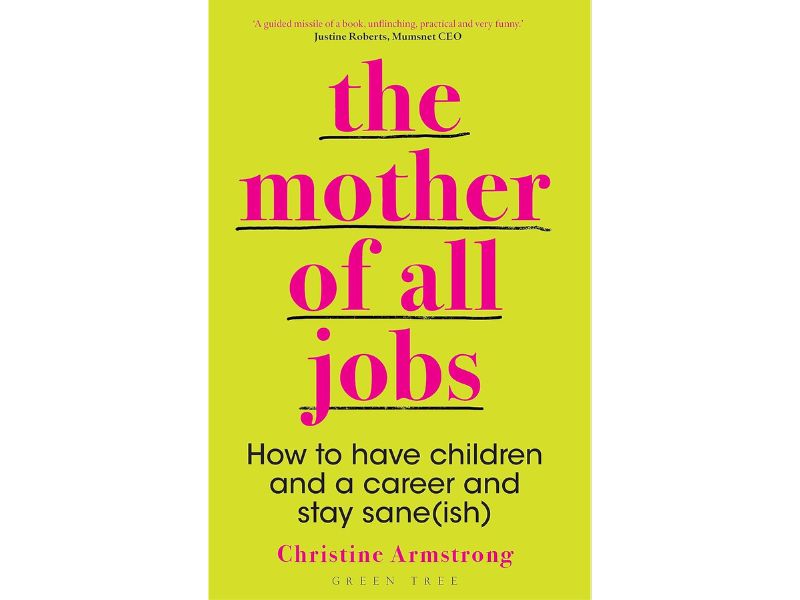2019 is just around the corner and perhaps reviewing your career is at the top of your new years’ resolution list.
And that might not just mean changing jobs but taking the plunge to work for yourself. If you haven’t had the confidence to take the leap before now, Dave Chaplin, CEO and founder of ContractorCalculator, an online site that provides free advice and information for freelancers and contractors, gives you some food for thought that might just give you the push you need.
Permanent employees considering making the leap into self-employment often think they don’t have the right skills, won’t find work, can’t afford it or are too young/too old. There’s always plenty of nagging “reasons” to justify putting off the fear of the unknown.
However, there are some two million freelancers currently working for themselves in the UK and many of those would tell any wannabe freelancer, if you have a marketable skill that an organisation would benefit from using on a fixed-term or project basis, then you can become a freelancer.
And sometimes, if you think of the worst possible outcome and how you would overcome it, you discover that the only thing stopping you from taking the plunge is actually fear of the unknown and fear of failure. Do you really want to go another whole year without giving it a try?
Skills barriers – having transferable skills
Before you think about freelancing, ask yourself what skills you have that could be marketable. To go freelance, you need to have a recognised and potentially niche skill that is in demand in the labour market, and which can be transferred from your employer to your first and subsequent clients.
Many would-be freelancers might be put off freelancing or contracting because they have heard that only skills that can be applied on a project basis are marketable. This is a myth. There are plenty of roles out there that need a contractor to help manage capacity, or to cover for an employee who can’t work for an extended period, perhaps because of an internal secondment, maternity leave or long-term sick leave. And, if you are a journalist for example, you can work on a number of written briefs for a number of publications – you are a proven writer first and foremost.
Lack of experience
Some employees believe that they have acquired the transferable skills that would be suitable for freelancing or contracting but lack the experience in applying them. And many would be right.
Clients are looking for someone who has been there and done it and can hit the ground running. They want to know their contractor can run the entire project from start to finish without having to be told what to do or can take a brief and deliver the requisite outcome by a given deadline.
Experience can help and it may only take months and not years, and will make you much more marketable.
Once you have made the transition to work for yourself, then you will find that each role adds to your skills and experience. You can also keep your skills updated through formal training that you will choose and fund yourself. You may also gain ‘experience’ by applying these new skills on current projects, possibly for free as a gesture of goodwill to the client.
Selling yourself – “I won’t be able to find any contracts”
If you have got the right skills and experience, then finding work should be easy. There are literally thousands of job boards, both broad and specialised, to search, and recruitment agencies that are looking for contractors with exactly your skills.
You’ll need to create a ‘killer CV’ and hone your contract interview techniques, because they are very different from what you may have been used to as an employee. But there is plenty of help and advice available.
Many first-timers receive some knock-backs and rejections in the first weeks and months of their freelance career, but it is a learning curve. If you persevere and apply the help and advice that is available, then you will find work.
Money worries – “I can’t afford to start a business”
Starting up on your own in the UK is incredibly cheap. All you need is to incorporate a company, open a bank account, buy some business insurance, get your life cover arranged, a mobile phone and some computer hardware and software, then find an accountant and you are in business. Potentially, that can all be done in a few hours.
Opening a bank account is free, and you’ll usually get a period with no bank charges. The start-up costs should be no barrier, and a few months of saving will cover these.
In fact, many accountants offer ‘first three months and company incorporation free’ type deals, and insurance can usually be paid monthly and not up front as a lump sum.
The real financial barrier you may encounter is not finding work for the first few months that it takes to find your first contract, and you have to fund your living costs. Many self-help gurus say that, “The best time for change is NOW”. This may be true, but it is essential to have a financial cushion because it enables you to have options.
So, before leaving your job, you should ensure that you have at least two and preferably six months of living costs as cash savings in the bank.
Age is just a number – “I’m too old/young to go contracting”
Unfortunately, despite the obvious benefits of experience and the legislation in place to combat it, ‘ageism’ persists. If you are older when you take the plunge, play to those advantages and strengths that come with your experience, rather than those that focus purely on cutting-edge skill.
You may believe that you are too young to go freelance, but this is no barrier. If your skills meet the demand curve at the right point, then you will get hired. There are times when demand is high and supply is low when knowledge workers with only a few years of work-place experience get hired. And increasingly, more graduates are setting up on their own straight out of university and this graduate guide will help.
Experience also depends on attitude and circumstance. A fresh graduate working in the right organisation on a cutting-edge project may gain more experience in a year than another will gain in two years in a different organisation.
Clients are increasingly recognising the benefits of experience alongside a fresh perspective, so there is a place for both older and younger freelancers on project teams.
For example, in marketing younger people may be more in tune with the digital aspects of marketing and less on the strategy and business success of a marketing communications campaign. Older freelancers bring deep knowledge and business expertise.
Other barriers – credit and security checks
In some roles, you may find barriers that you cannot immediately or ever overcome, but these will not be a barrier to you becoming a freelancer or contractor. Typical examples include credit and security clearance.
If you have a poor personal credit history, perhaps because you had a business that failed leaving you with substantial debts, then it is unlikely you will secure a role with a financial sector client. You can work to improve your credit rating over time so that may get you to the point when your credit history will no longer be a barrier.
There are some assignments that require security clearance. This can be a protracted process taking many months, and you may ultimately fail to secure clearance for reasons that are completely beyond your control.
Neither of these should be obstacles to setting up on your own. There are plenty of contracts available across all skills and disciplines that do not require credit checking or security clearance.
Go for it in 2019
If you don’t always want to be asking yourself ‘what-if?’ then perhaps 2019 is the year that you take the leap and take control of your future career as a freelancer or contractor. The benefits outweigh the disadvantages and many never look back. If you don’t try it, you will never know what you’ve missed and if it doesn’t work out and you decide you are not cut out for it then you can always return to the permanent workplace. What are you waiting for?
About the author
Dave Chaplin is the founder and CEO of ContractorCalculator an online resource for contractors, freelancers and the self-employed that has become the expert guide to contracting since it was launched in 1999. He is also the author of The Contractors’ Handbook which is filled with practical guidance and advice to help independent professionals to build a successful, enjoyable and profitable contracting career. The Contractors’ Handbook Third Edition ISBN 978-1-5272-1603-7 is available for £49.99. Visit Amazon to get your copy now.









